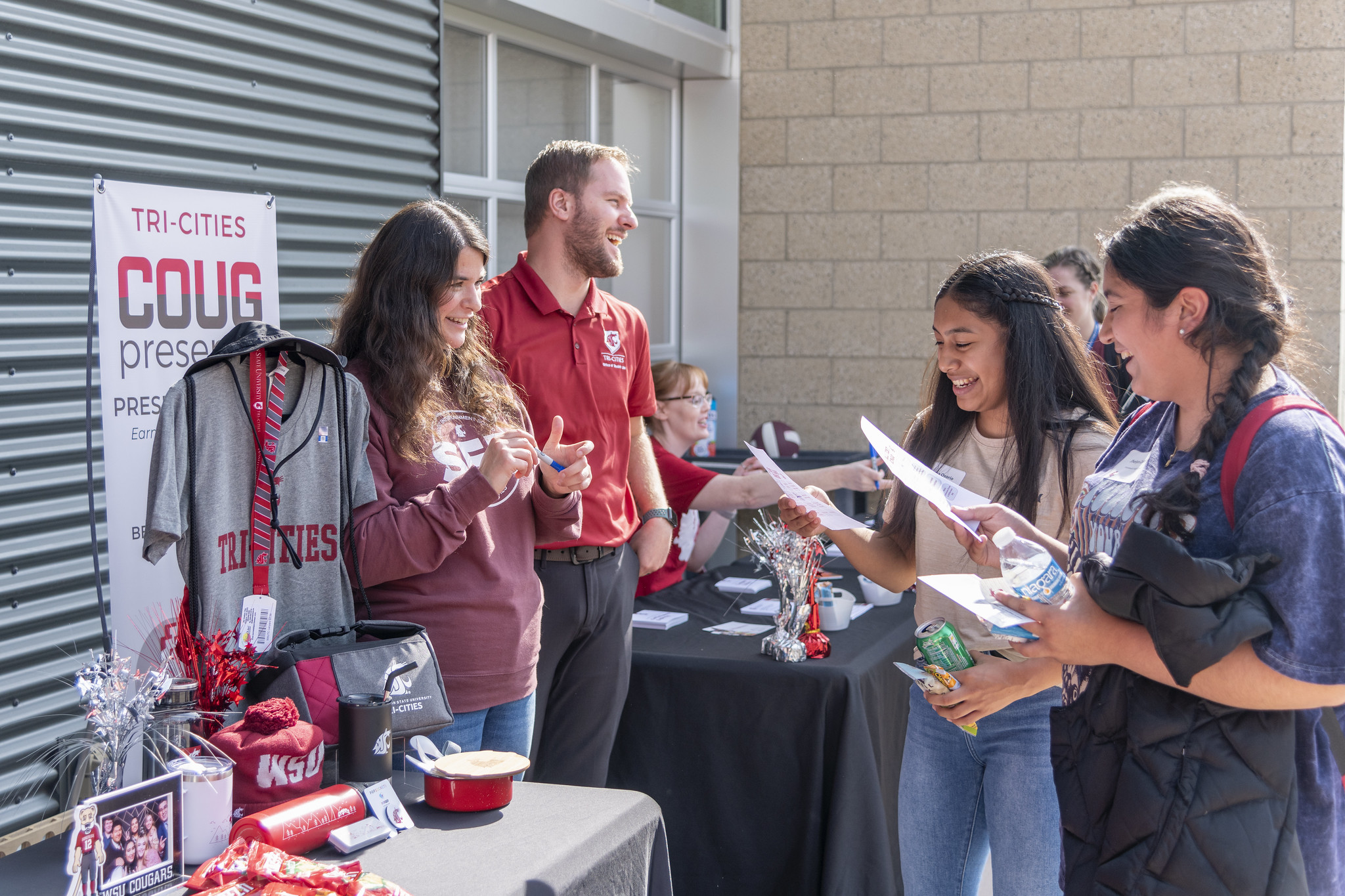Washington State University (WSU) Tri-Cities established a program that incentivizes student engagement in co-curricular activities as a way to create community, boost student academics and retention and graduation rates. The Presence Points program, which allows students to earn points based on their level of participation and redeem them for various items, was established because the university observed a low rate of student involvement in its clubs, organizations, activities, and events. School leadership was concerned that this lack of connectivity with the university community could be a harbinger of students’ declining academics and reduced retention and graduation numbers. WSU Tri-Cities intends for this program to help improve the outcomes of its nearly 1,500 students, in particular its first-generation and minority populations, which make up about 45% and 50% of enrolled students, respectively. This incentive program, launched in the 2021–2022 academic year, is expected to help students improve their resilience and well-being, gain critical-thinking skills and self-confidence, become better acclimated to the campus community, and elevate their overall success, particularly if they are first-generation and minority students. It dovetails with WSU Tri-Cities’ demonstrated commitment to making quality postsecondary education affordable and available, particularly for underrepresented groups. About half of the student population does not pay out-of-pocket expenses for tuition to attend this four-year university. Part of the WSU system, WSU Tri-Cities in Richland, Washington, is a leading public research institution that delivers career-connected learning and innovative research to address economic and social challenges.
The Methodology
To build support and enthusiasm for the Presence Points program, WSU Tri-Cities developed a promotional campaign and collaborated with university faculty and staff. Many of the university’s students have family commitments outside of school, which made it necessary for their families to support the program and afford the students the space and encouragement to be more engaged on campus. Therefore, WSU Tri-Cities advertised the program to students and their family members during New Student Orientation. In addition, officials connected with faculty and staff throughout the university to include more engagement opportunities for students. WSU Tri-Cities wanted to engage various aspects of the university so they could be properly incentivized in the program.
WSU Tri-Cities located the Presence Points program on its student engagement platform, Coug Presence, where students can discover campus events, activities, and more than 20 student organizations and clubs, including the Black Student Union and Yoga Club. The Office of Student Engagement and Leadership manages the online portal. Students can earn points for attending and reflecting on events; working out in The Den, the on-campus indoor recreational center; joining, participating in, and reflecting on a student organization experience; and holding a leadership position in a student organization. The points then can be redeemed for university-themed items from lanyards to backpacks through this gamified approach to engagement.
The university’s point system also serves as a data tracking mechanism to determine if co-curricular involvement is benefiting students, particularly first-generation and minority students. Officials can track and assess student participation rates in campus groups and activities, grade point averages (GPAs), and persistence in the points program. Eventually, they plan to examine disaggregated data to see how this program impacts students in particular degree programs, racial groups, and gender groups, among others. By monitoring this data, WSU Tri-Cities can determine how the Presence Points program is affecting the achievement gap of its first-generation and minority students and identify any additional ways it can assist these students. This data will be highlighted to promote the program and the importance of student engagement in and out of the classroom among prospective students, family members, and the whole community.
The Impact
WSU Tri-Cities’ goal for the first full year of the Presence Points program was to establish a baseline of data to track and assess the students’ levels of engagement. In the 2021–2022 academic year, 522 total students received points, which is 33.5% of fall enrollment and 38.4% of spring enrollment. Students who participated in the program achieved higher GPAs than all WSU Tri-Cities undergraduates in most areas. Students who had lower levels of engagement (5 points to 150 points) achieved GPAs of 6% to 14% higher than the student population as a whole. Those with higher levels of engagement (151 points to 1,250 points) achieved GPAs of 15% to 19% higher than the population as a whole. The university also found that students who participated in the program persisted or graduated at an 11.2% higher rate than the overall student body. This baseline data suggests that the more students are engaged, the more likely they are to be successful.
However, WSU Tri-Cities noted that there might be a point of diminishing returns for engagement. At the highest levels of engagement, some students, especially those in their first and second years, experienced a decrease in their GPAs, according to an analysis of the initial year’s data. If more data support this trend, WSU Tri-Cities may need to adjust the program to ensure students are not getting overly engaged early in their academic careers, which could negatively impact their academic performance. Although the program didn’t achieve its ultimate goal for all students, the university believes these goals will always be changing and that it must adapt to the evolving needs of the students.
Key Takeaways
WSU Tri-Cities recommends gamifying engagement for colleges and universities with small, diverse student populations, including those with large numbers from underrepresented groups. Allowing students to accumulate points and redeem them for items can encourage engagement in co-curricular opportunities and promote connectivity within the campus community.
